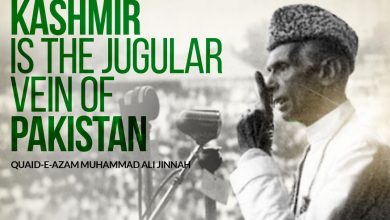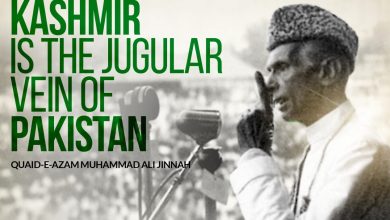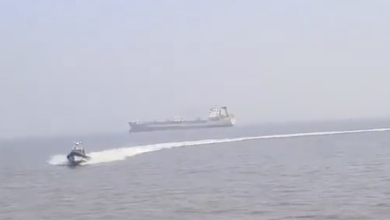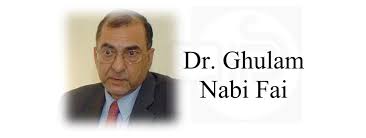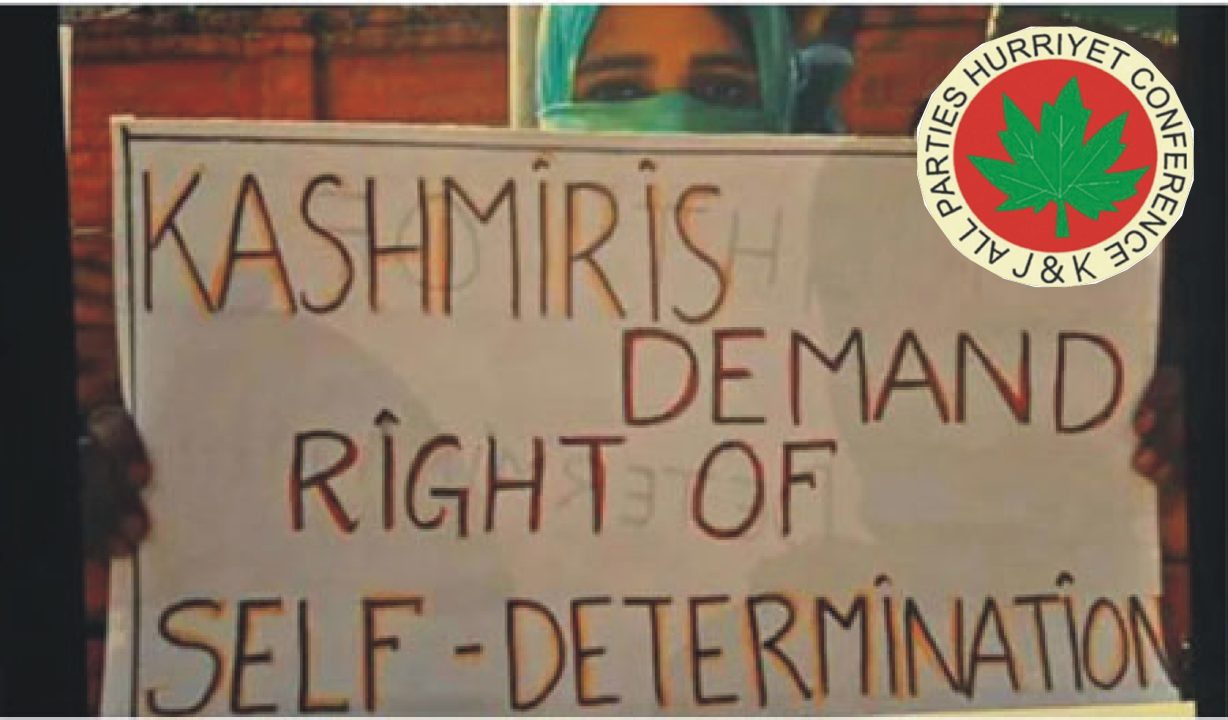
What prevented the plebiscite’s holding was India’s refusal to accept any proposals that called for her to withdraw the bulk of her forces from Kashmir and thus conclude a truce leading to the induction of a Plebiscite Administrator. When the Commission reported this to the Security Council, Sir Owen Dixon, an eminent jurist from Australia, was appointed as United Nations Representative to negotiate the synchronized withdrawal of all Indian and Pakistani forces in order to prepare the stage for an impartial plebiscite under United Nations supervision. After an intense effort, he reported to the Security Council on 15 September 1950 that: “In the end I became convinced that India’s agreement would never be obtained to demilitarization in any form or to the provisions governing the period of plebiscite of any such character, as would in my opinion, permit the plebiscite being conducted in conditions sufficiently guarding against intimidation and other forms of influence and abuse by which the freedom and fairness of the plebiscite might be imperiled.”
The same was the substance of the reports of Senator Frank Graham (United States) and Gunnar Jarring (Sweden) who succeeded Sir Owen Dixon as United Nations Representatives.
Since the plebiscite could not be impartial unless both India and Pakistan withdrew their forces from Kashmir, a stalemate ensured. This stalemate has now lasted for more than seventy-seven years.
Professor Khurshid Ahmad, Chairman, Islamic Foundation, U.K. and an intellectual and scholar of international repute wrote in April 2001 that “The Kashmir problem is not a land dispute. Nor is it a product of a conflict over land grabbing between the two countries i.e., India and Pakistan. It is about freedom and the right of self-determination of some 12 million people whose state has been annexed by a colonial country through brute force. That country is still occupying the state through its brutal use of force. This oppressive power is adamant on establishing the fascist and colonial rule of ‘might is right’ in total negation of its own pledges, the UN resolutions, and the unprecedented movement and sacrifices of the people of Kashmir for freedom. The United Nations and its Secretary General are stuck to a cowardly and criminal policy of turning blind eye and deaf ear to what is happening.”
Professor Khurshid added that “Nobody has the right to play with the fate of more than 12 million people of Jammu & Kashmir. The governments of Pakistan and India, too, cannot, by themselves or under external pressure, decide on their future. Their duty and that of the world body is only that they provide for the exercise of the right to self-determination through a bipartisan plebiscite under international auspices. It is this right the Kashmiri people are fighting for. No leadership in Pakistan and no international leader has the right to adopt a line other than these historical facts and the stand based on truth and justice. Whoever opted for a course other than this had to, and will have to, face disgrace and retreat; and will distort the issue even further rather than bring about any improvement in the situation. This is an irrefutable principle of history that cannot be wished away by way of desire or conspiracy.
Dr Syed Nazir Gilani, President, Jammu Kashmir Councilor Human Rights (JKCHR) and internationally known expert on the subject wrote to the UN Secretary General that “Article 1 (2) of UN Charter, Article 1 (1) of ICPR and Article 1 (1) of ICES uphold the “equality and right of self-determination” of all people. One such people who have been recognised by the United Nations for their “rights and dignity” and “security and self-determination” are the people of the State of Jammu and Kashmir. The United Nations has defined these people as “People of legend, song and story, associated with snow-capped mountains, beautiful valleys and life-giving waters”. Today we associate them with living in a highly militarised zone and locked down inside their homes.”
It seems that the words of Professor Khurshid Ahmed and Dr. Syed Nazir Gilani echoed in the minds of many discerning observers in the Indian public square who believe that the persistence of the Kashmir problem weakens India by diminishing its stature among the great powers. Here are the illustrations.
Mr Vir Sanghvi wrote in the New Delhi based Hindustan Times on August 16, 2008, “So, here’s my question: why are we still hanging on to Kashmir if the Kashmiris don’t want to have anything to do with us?” “I reckon we should hold a referendum in the Valley. Let the Kashmiris determine their own destiny. If they want to stay in India, they are welcome. But if they don’t, then we have no moral right to force them to remain.” “It’s time to think the unthinkable.”
Columnist Swaminathan Aiyar wrote in 2008 in The Times of India “We promised Kashmiris a plebiscite six decades ago. Let us hold one now, and give them three choices: independence, union with Pakistan, and union with India. Let Kashmiris decide the outcome, not the politicians and armies of India and Pakistan.”
Professor Rajmohan Gandhi, the grandson of Mahatma Gandhi said during a conference in Washington, DC in 2005, “Let us remember here that the future of Jammu and Kashmir is not something that the governments of India and Pakistan can decide without involving the Kashmiri people.”
When Arundhati Roy, Booker Prize winner was asked: on October 3, 2019, Do the people of Kashmir want self-determination? She said, “I don’t think that they could have been clearer. They’ve been saying it for 70 years. They’ve been saying it loudly. They’ve been saying it with their blood since 1990. Of course, you know, of course, it’s self-determination.”
Ashok Mitra, former finance minister of West Bengal wrote under the heading, ‘Kashmir: The Ground Realities,’ that Why beat about the bush? A permanent army of occupation is still a non-answer. We have no right to hold people against their will either we talk to them and try to win back their confidence, or we let them go to whatever fate they want to drift into. (Daily Telegraph, Calcutta).
Justice V. M. Tarkunde, former Judge of Bombay High Court who is known as, ‘Father of Civil Liberties Movement in India’ wrote in ‘Radical Humanist, New Delhi, “While it is not easy to find a solution of the Kashmir issue, it is clear that any attempt to solve it must be guided by the basic consideration that a people who have a distinct language, culture and religion and who constitute an overwhelming majority in the Kashmir Valley cannot be retained in India by force and against their will for an indefinite period.”
Ved Bhasin, former Editor-in-Chief, Kashmir Times said that “I feel the Jammu and Kashmir problem has to be solved by peaceful methods. We have to find a just and peaceful solution that satisfies the political aspirations of the people of Jammu and Kashmir.”
George Fernandes, Federal Minister of Kashmir Affairs, Government of India said at the Center for International Affairs, Harvard University on October 12, 1990, that “I do not believe that any foreign hand engineered the Kashmir problem. The problem was created by us, and if others decided to take advantage of it, I do not believe that one should make that an issue. Given the nature of the politics of our subcontinent, such a development was inevitable.”
BBC quoted Prof. Sumantra Bose of London School of Economics who said, “Any notion that the Kashmir conflict has been successfully put in cold storage has been exposed as a delusion during the summer of 2008. The lesson: Frozen conflicts don’t stay frozen, and windows of opportunity to make real progress towards solutions don’t come often. Stalling on such opportunities can be perilous.”
(To be continued)





